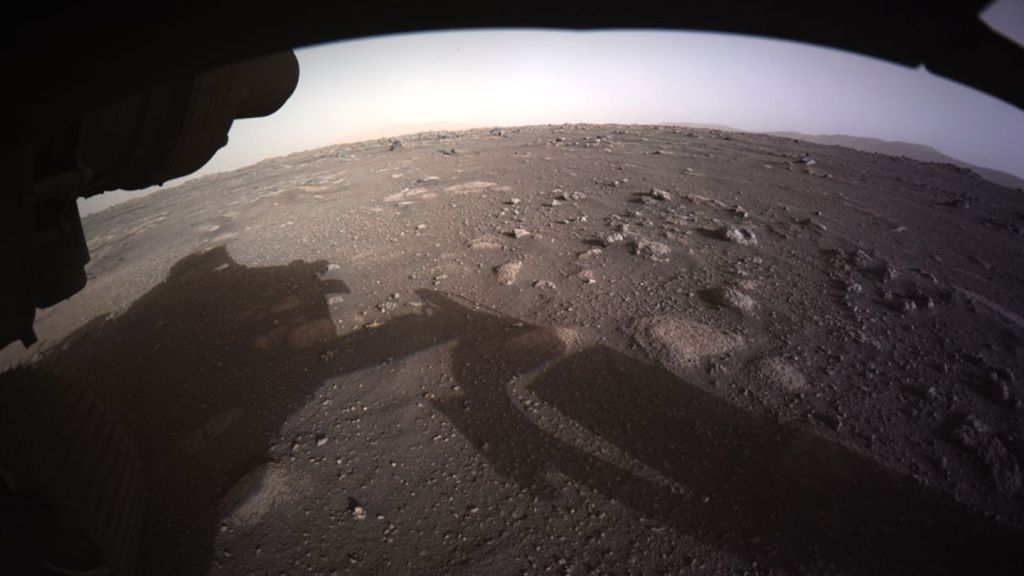The question of whether we are alone in the universe goes back millennia, and we may well be on the cusp of finally answering it. With several ambitious telescopes currently in construction and a trip to the tantalizing moon Europa officially in the works, there is every reason to be optimistic about our odds of detecting life on extraterrestrial planets in the near future (indeed, NASA chief scientist Ellen Stofan expects it to happen within 10 to 20 years).
But according to NASA astrobiologist Lynn J Rothschild, exploring outer space isn’t the only way to make first contact with novel forms of life. Rothschild uses synthetic biology to contextualize fundamental questions about the origins of life, and in her view, our first contact with alien lifeforms is more likely to take place in Earth’s own laboratories than on distant planets.
Videos by VICE
“I think we have a better chance of making life on Earth before we find it elsewhere,” Rothschild told me over the phone. “We’ve got a lot of smart people working on that and we don’t have to wait for missions. We can work on it every single day.”
For instance, take Rothschild’s comprehensive research into extremophiles, a wide-ranging category of organisms that can survive punishing conditions on Earth and beyond. For the last several years, Rothschild has led teams of students and colleagues in efforts to tweak the genetic makeup of these hardy lifeforms, making them even tougher under environmental stress.
Rothschild measuring solar radiation in Bolivia. Image: Lynn Rothschild/NASA
“Synthetic biology has the potential to make organisms more resistant to radiation or temperature extremes,” she said. “You can mix and match genes and do all sorts of things that if you were breeding [organisms] would take forever.”
These modified extremophiles can shed light on a variety of astrobiological questions, including whether or not a planet is potentially habitable. “Say we find a planet, and it has a certain pH, temperature, and radiation regime,” Rothschild told me.
“That’s where we take up the challenge and go into the lab,” she continued. “We’ll say, ‘All right, let’s start with this one that can live at low pH and high temperature. Can we add the radiation resistance?’ Then, we can go back to the astronomers and say [habitability] is not impossible, because we just made something in the lab like that last week.”
“We could make something that has a different operating system than life today.”
For Rothschild, it goes without saying that planets like Mars would pass this litmus test. “I could make you something—in fact, I could probably find you something—that could survive on the surface of Mars today,” she said.
As an example, she suggested microbes that thrive in high salt concentrations on Earth. “Those [microbes] could probably survive on the surface of Mars today,” she said. “I don’t know for how long and I don’t know how often they’d end up reproducing, but I could stick [a sample] out there, and know that it’s probably going to last for at least ten years.”
Mars’s northern polar cap could support life. Image: NASA
Of course, as fascinating as transferring an Earth-based microbe into a Martian environment would be, it isn’t the same as creating an entirely alien organism—a lifeform that is completely distinct from anything from our planet.
But Rothschild and her colleagues are working on cracking that particular nut in the lab as well, which informs her prediction that scientists will engineer new life at home before they detect it abroad in the universe.
“We could make something that has a different operating system than life today,” she told me. “A lifeform that’s completely different from ours that doesn’t use DNA or RNA, and has a totally different set of chiralities”—a term describing the level of asymmetry in a lifeform’s molecular makeup.
“That does not mean that’s the way anything in the universe evolved,” she said. “But it shows us one potential pathway.”
Needless to say, it’s exciting to have reached an era in which contact with unearthly organisms is regarded as an inevitability. But whether we will be detecting these lifeforms on distant worlds or creating them at home remains to be seen.



